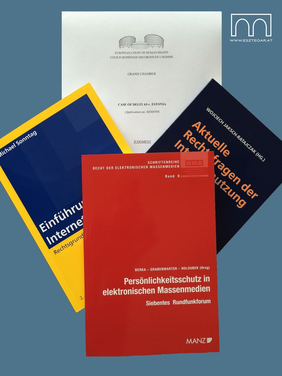Offensive postings on a website may already be inadmissible under Austrian law. The offended person or the person whose honour has been violated can claim damages from the offender under section 1330 of the Austrian Civil Code and demand the deletion of such postings. In addition to the obligation to pay damages, the offender may also be prosecuted under certain circumstances, for example for insult (§ 115 StGB) or defamation (§ 111 StGB), whereby the offence is - as a rule - only to be prosecuted at the request of the person whose honour has been violated.
In this context, the Supreme Court already clarified last year that a person who was allegedly injured in his or her honour or damaged in his or her credit by a posting on a website could commit the disclosure of the user's name, address and e-mail address by the operator of the platform. According to the Supreme Court, if the posting had no connection with a journalistic activity, the operator of the platform could not invoke editorial secrecy.
However, in the ECtHR's decision in Delfi AS v. Estonia (64569/09) of 16.06.2015, the Court considered the website operator to be jointly responsible:
In the winter of 2006, an Estonian ferry company had to change its routes due to weather conditions, destroying some ice surfaces that had previously been used for car traffic on land. This circumstance provoked strong protests among the affected population, which were reflected, among others, on the news portal Delfi.ee, where users called the ferry company "scum", "bastard" or "pigs" and also called for violent actions against the ferry company. Delfi.ee removed these posts after being asked to do so, but the owner of the ferry company, who had also been disparaged by name, felt insulted and sued for compensation.
The dispute ultimately ended up before the European Court of Human Rights in Strasbourg, which found that the aggressive postings had not been deleted from the website quickly enough. Delfi.ee was a commercial news site that could not be equated with classic internet forums or social networks.
According to the ECtHR, it is reasonable for an editorial office that allows comments to set up a moderation of the comments as soon as they appear, so that hate postings can be prevented from the outset. This responsibility of the operator is proportional to the interest of persons to be protected from hate speech such as shitstorms. Since direct legal protection against the immediate poster often cannot be brought about (at least not quickly enough), liability claims against the website operator do not violate Art 10 ECHR (freedom of expression).
The ECtHR thus creates a criterion for distinguishing between websites that are editorial in nature on the one hand, and typical social media applications on the other. While it is a characteristic feature of the latter that the main content is contributed by the user, editorial news sites are characterised differently: here, the comment function is merely a feature, for the content of which the editorial team ultimately has a certain responsibility.





